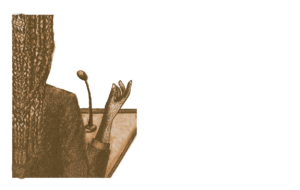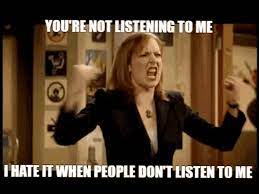In Michelle Alexander’s book The New Jim Crow, she told the story of a black youth who came to her, as a lawyer for the ACLU, complaining he was being targeted and framed by local police. He had stacks of paper, dates, reports, evidence, but Alexander didn’t believe him. At this early stage in her legal career, she was still operating under the good faith assumption that the criminal justice system was a positive agent with only a few outlier episodes of racism or deliberate police misconduct. The young man threw his hands up flabbergasted.
“Nobody will listen to me!”
I recently went online and my eyeline couldn’t escape a piece of click bait on the Forbes.com website by executive business coach Hanna Hart. It had a huge image of writer Ta-Nehisi Coates as its draw.
“What???,” I gasped. “A white business coach quoting Ta-Nehisi Coates in the bible of ‘we’re white men we don’t have to listen to anybody else’ magazines? This I gotta’ see.”
Hanna used an interview where Coates was asked a question that he decisively answered with “I don’t know”.
I’ll be darned, did that just happen? The caliph of “I don’t give a –eff what white people think I’m going to write my truth” just got quoted as having something valuable to say to business exec’s.
I find the hardest part about discussing race is conveying to white people that I know what the hell I’m talking about. That I, an ordinary black woman sans pedigree or the bona fides of letters after my name, am a credible and valuable source for worthwhile information regarding the realities of race in our culture. Seeing Coates quoted on Forbes.com grabbed my attention because I’m not used to black voices being regarded as having anything valuable to offer when there are so many other white voices to choose from first.
Even when it comes to race, we are regarded as incapable of being dispassionate and objective. An 80-something year old retired white real estate lady in Georgia once said to me “oh, you’re just hung up on all that racial stuff because you’re writing a book about it.” Would it ever occur to anyone that after all her years in the trenches, she would be dubious as a credible source for advice on how to sell a house? Could it be that I’m not “hung up” on race, but I have decades of experiences that give credence to my positions?
Debbie Irving woke up white in 2009, then made a wad of dough when thousands of white people woke up with her in her 2014 book about coming to realize how white privilege has indeed buoyed her life circumstances. The book White Fragility by white author Robin DiAngelo lorded over the New York Times best seller list for over a year and all she did was restate all the things white people haven’t been listening to black people tell them for decades. But a white lady with some degrees puts it in a book, now everyone’s ready to pay over a hundred dollars when she comes to town to essentially read the book back to them– the book she already got twenty five dollars out of them for once (“nice work if you can get it”). Anything but, God forbid, go to the black side of town, sit at these people’s dining room tables and listen to them like their stories really could stand on their own.
(To be sure, both of these books are excellent reads for white people wondering what all the hullabaloo around privilege is about.)

